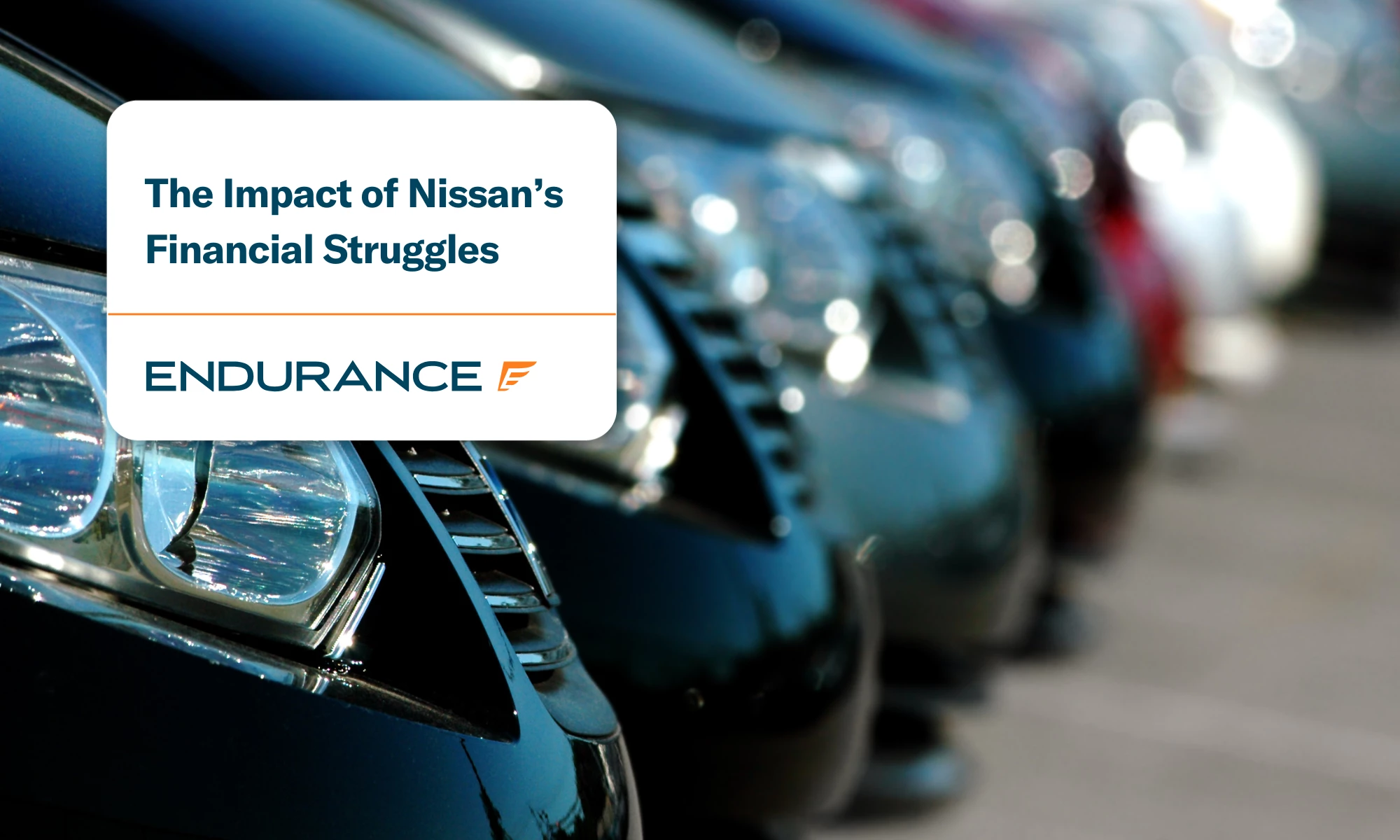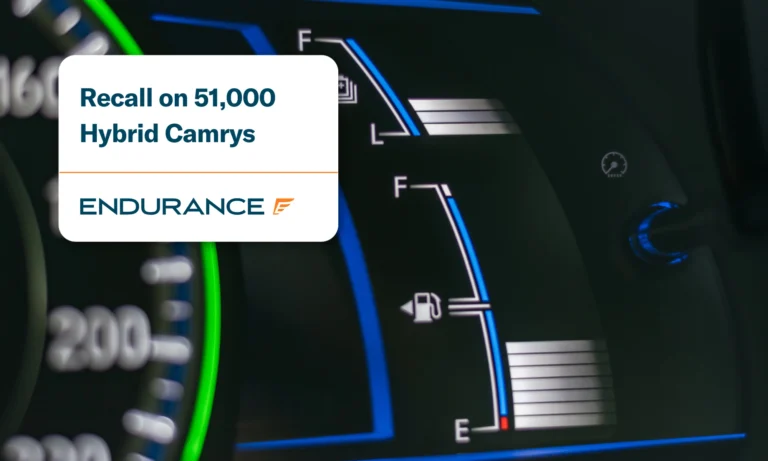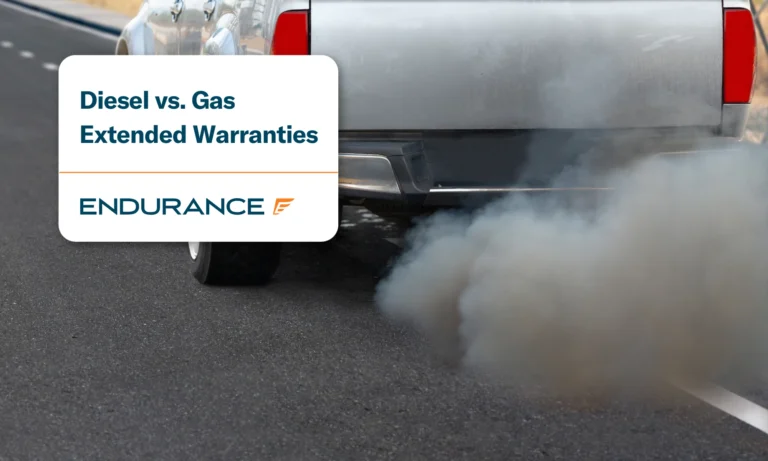Cómo las dificultades financieras de Nissan podrían afectar a los propietarios de automóviles

Los titulares recientes no han inspirado confianza si tienes un Nissan en la entrada. El fabricante de automóviles japonés continúa... desafíos financieros Podría afectar a los propietarios de sus vehículos de diversas maneras, incluyendo posibles retrasos en la disponibilidad de piezas, un servicio de garantía más lento y una reducción del valor de reventa. Si bien Nissan sigue operando, sus planes anunciados de recortar empleos, cerrar fábricas y reducir el desarrollo de productos futuros indican un cambio importante. Para los propietarios actuales y potenciales de... modelos como el Altima, Vehículos Rogue, Sentra e Infiniti, es importante mantenerse informado sobre cómo estos cambios pueden afectar los costos de propiedad a largo plazo y el soporte del vehículo.
A continuación, se ofrece una explicación en términos sencillos de lo que está sucediendo con Nissan y lo que significa si conduces uno de sus modelos.
La crisis financiera de Nissan
La magnitud de los desafíos financieros de Nissan sale a la luz al revisar el plan de recuperación de la compañía, denominado Re:Nissan. declaración oficial Revela los ambiciosos objetivos de Nissan: reducir su plantilla en 20.000 empleados para el año fiscal 2027 y reducir el número de plantas de ensamblaje de vehículos de 17 a 10 en el mismo plazo. Se trata de un esfuerzo significativo para superar la mayor pérdida neta en la historia de Nissan.
Nissan fue una vez un innovador, como se ve con el Hoja de Nissan, el primer vehículo eléctrico producido en masa vendido en EE. UU. Sin embargo, solo incursionó en plantas de energía híbridas, incluso licencia de la tecnología de Toyota Hace casi dos décadas, para el efímero Altima Híbrido. En contraste, la mayor parte de la línea actual de Toyota ofrece una opción híbrida o es exclusivamente híbrida. Al mismo tiempo, las ofertas más populares de Honda, como el Accord, el Civic y el HR-V, están disponibles con un sistema híbrido. ¿Cuántos híbridos Nissan hay disponibles para el modelo 2025? Ninguno, aunque se está desarrollando un Rogue Híbrido para 2026.
A los problemas de Nissan se suma una división de lujo en dificultades. Durante su año pico de ventas en EE. UU. en 2012, Infiniti vendió más de 235.000 vehículosComparemos eso con 2024, cuando la marca solo trasladó 58.000 unidades de sus concesionarios de lujo. El año pasado, Nissan esperaba que una fusión planificada con su archirrival Honda fuera su salvación, pero el acuerdo pronto se frustró. Nissan estaba decidida a una fusión entre iguales, mientras que Honda esperaba que Nissan fuera una filial. Como resultado, el tercer fabricante de automóviles de Japón (Nissan) no tuvo más remedio que implementar recortes drásticos.
Qué significa esto para el soporte y las reparaciones de la garantía
Cualquier empresa que realice recortes para sobrevivir puede afectar indirectamente la experiencia del cliente. En el caso de un fabricante de automóviles como Nissan, esto puede significar que el cumplimiento de la garantía y el servicio de atención al cliente se vean afectados. Esto puede comenzar con un mayor rigor en las condiciones de la garantía. Por ejemplo, la empresa puede exigir que... mantenimiento requerido del vehículo debe haberse realizado de acuerdo con el cronograma especificado.
Saltarse uno o dos cambios de aceite podría significar que Nissan no cumpla con las reparaciones de garantía si el problema se debe a una falta de mantenimiento. En algunos casos anteriores en la industria, la reestructuración financiera ha afectado la rapidez con la que se procesan las reclamaciones de garantía. Si bien todavía no hay indicios de que esto ocurra en Nissan, es un desarrollo que vale la pena observar.
Para los actuales propietarios de Nissan, el mayor desafío podría ser la disponibilidad de piezas. A medida que Nissan cierra plantas de fabricación y reduce sus relaciones con los proveedores, obtener piezas de repuesto podría volverse más difícil y costoso. La empresa también podría reducir el inventario de repuestos. Los fabricantes externos podrían ocupar este puesto, pero esto no ocurrirá de inmediato.
Otra parte destacada de la declaración de reestructuración de Nissan es que la compañía “pausará temporalmente las actividades de productos avanzados y posteriores al año fiscal 2026 para movilizar a 3000 personas y centrarse en iniciativas de reducción de costos”. Esta declaración indica un cambio estratégico en las prioridades, que podría resultar en menos actualizaciones de software o boletines técnicos para los vehículos actuales, especialmente aquellos que dependen en gran medida de sistemas digitales.
El riesgo para el valor de reventa y los costos de propiedad a largo plazo
Puede que la depreciación no sea lo primero que tengan en mente la mayoría de los propietarios de autos, pero es importante a la hora de entregar un vehículo a cambio. El reto para los propietarios de un Nissan es que sus vehículos ya tienen un valor residual inferior al de otras grandes marcas japonesas, según CarEdge.
| Marca | Promedio de cinco años Valor residual* |
| toyota | 63.6% |
| honda | 60.7% |
| Mazda | 60.4% |
| Subaru | 58.9% |
| Nissan | 50.7% |
*Promedio de la marca para el modelo 2020 según datos de CarEdge.
El valor de reventa está directamente relacionado con la percepción de la marca y la estabilidad del fabricante. Un fabricante de automóviles en un contexto de incertidumbre e inestabilidad financiera no contribuye a aumentar la confianza del consumidor. Los compradores potenciales pueden dudar en comprar un Nissan nuevo o usado, lo que puede generar precios más bajos debido a la menor demanda. Si la confianza del mercado flaquea, algunos modelos podrían generar menos interés por parte de los compradores, aunque el valor de reventa depende de muchos factores, como la disponibilidad, el precio y la demanda regional.
Los planes de reestructuración de la compañía incluyen reducir la complejidad de las piezas en 70% y disminuir el número de plataformas de vehículos de 13 a 7 para el año fiscal 2035. Esto significa que habrá menos modelos futuros en las salas de exhibición de Nissan, y que las marcas restantes compartirán más componentes. Esto es una buena noticia a largo plazo para los futuros compradores, pero podría poner en aprietos a los propietarios actuales y a los compradores a corto plazo. En algunos casos, los modelos descontinuados pueden enfrentar desafíos con la disponibilidad de piezas y la familiaridad de los técnicos, pero esto depende del vehículo, la región y cómo Nissan gestione su cadena de suministro durante la transición.
¿Deberían preocuparse los propietarios de un Nissan?
Mientras Propietarios de Nissan Deben estar al tanto de lo que ocurre con la empresa; no hay necesidad de alarmarse. Nissan sigue operando, fabricando vehículos y cumpliendo con sus obligaciones de garantía. El plan de reestructuración llevará tiempo y podría requerir años antes de que mejoren los resultados de la empresa.
Un factor a su favor es el gran tamaño de Nissan. Operando a escala global, la compañía aún cuenta con importantes operaciones de fabricación y distribución. No desaparecerá de la noche a la mañana si la situación empeora. En este caso, podría surgir un pretendiente corporativo y adquirir la compañía. Honda podría regresar, o podría intervenir otra empresa. Marcas automotrices legendarias han cambiado de manos anteriormente. El Grupo Tata de India compró Land Rover y Jaguar, y Geely Holding, con sede en China, adquirió Volvo. No es descabellado que Hyundai-Kia intervenga, o que su socio Renault consolide su dominio. La marca china de autos eléctricos BYD podría querer sumarse a la competencia.
Al mismo tiempo, Nissan continúa trabajando con socios existentes y desarrollando nuevos proyectos, lo que demuestra la confianza de otras empresas en la viabilidad a largo plazo de Nissan. Mitsubishi Recientemente anunciado que lanzará un nuevo vehículo eléctrico (EV) en Estados Unidos o América del Norte, basado en el Nissan Leaf de próxima generación.
Lo que los actuales y futuros propietarios de un Nissan deberían tener en cuenta es la base de concesionarios de la compañía. No es ningún secreto que la red de más de 1000 concesionarios de Nissan también está sufriendo las consecuencias del fabricante. Noticias de automoción informó que la utilidad operativa promedio de un concesionario Nissan se desplomó en 70% durante los primeros tres trimestres de 2024.
El cierre o cambio de propietario ocasional de un concesionario es común en la industria automotriz, pero el cierre masivo de concesionarios cruciales es una señal de alerta importante. Además, preste atención a la reducción del horario de servicio, las dificultades para programar citas de reparación (especialmente para problemas relacionados con la garantía), la dificultad para obtener repuestos y el retraso en las reparaciones cubiertas por la garantía.
Por qué una garantía extendida aporta seguridad en tiempos de incertidumbre en la industria
A nadie le gusta la incertidumbre, especialmente cuando se trata de una inversión importante como un automóvil. Es aquí donde la tranquilidad que brinda un... garantía extendida del automóvil (también conocido como plan de protección automática o contrato de servicio de vehiculo) puede ser invaluable. Ya sea que conduzca un Nissan, un Infiniti u otra marca, un plan de protección puede ayudarle a cubrir el costo de reparaciones inesperadas.
En particular, una Plan de garantía Endurance Fija el costo de la cobertura durante la vigencia del contrato. Si el precio de las piezas o la mano de obra aumenta, usted paga lo mismo. Es una forma inteligente de aprovechar la imprevisibilidad. Es importante destacar que Endurance funciona independientemente de Nissan y otros fabricantes de automóviles. Por lo tanto, está protegido independientemente de lo que suceda en el mercado automotriz. Igualmente importante, Endurance le permite elegir cualquier Instalación autorizada para reparaciones cubiertas, incluidos mecánicos certificados por ASE y departamentos de servicio de concesionarios.
Los titulares del plan Endurance obtienen una sólida gama de beneficios que importan, especialmente una vez que su vehículo ya no tiene Cobertura de garantía de fábricaCada contrato Endurance incluye Asistencia en carretera 24 horas al día, 7 días a la semana (con remolque), reembolso de alquiler de coche, protección contra interrupción de viaje, y acceso a la exclusiva Aplicación móvil Endurance.
Esté preparado para el camino por delante
Conozca más sobre su Opciones de cobertura Endurance No podría ser más fácil. Solicitar presupuesto GRATIS o llamar (800) 253-8203 para hablar con un asesor de planes. También puede ver tu precio y planes recomendados en la tienda online Endurance.
Conozca más sobre su automóvil y las tendencias de la industria automotriz con nuestro Blog del Centro de aprendizajeEsta biblioteca de artículos cubre información sobre garantías, reparaciones que puede hacer usted mismo, consejos de mantenimiento y reseñas de vehículos Nissan, BMW y más.













Dave es un periodista especializado en automoción que combina una profunda pasión por los coches, experiencia práctica en mecánica y conocimiento de los concesionarios. Su trabajo se centra principalmente en consejos para consumidores y artículos para aficionados al automovilismo. Colaborador habitual de SlashGear.com y otras plataformas líderes en automoción, Dave se licenció en Periodismo en la Universidad George Washington.